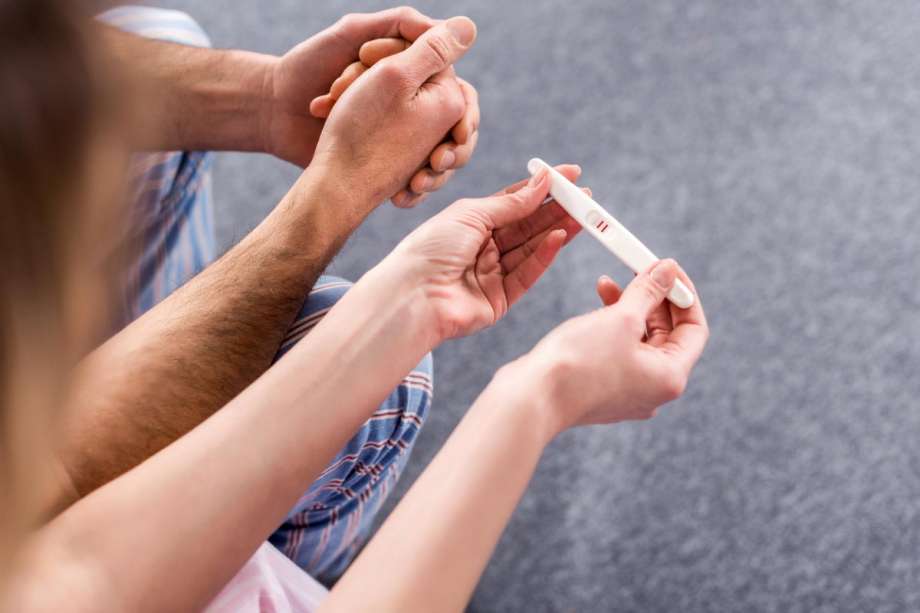Trying to Conceive During the Coronavirus Pandemic

The American Society for Reproductive Medicine (ASRM) released a statement on March 17, 2020 recommending that fertility treatments be suspended to protect clients and staff from coronavirus exposure and transmission. The statement also highlighted the nation’s priority to deploy healthcare resources for more pressing health needs, and noted (rather ominously) the unknown “potential risk of COVID-19 on pregnancy, the fetus and child well-being.”
More: 4 Things You Still Can Control If You Are Pregnant During This Pandemic
That last little bit is is the root of quite a bit of controversy. So it comes down to this: If we don’t know what the impacts are on pregnant people and babies, is it ethical to continue fertility treatments? Secondly, is it ethical to remove someone’s right to medical procedures? Some folks argue fertility treatments are essential, and some will disagree. People all across the spectrum have vastly different (and strong!) opinions on this topic.
There are so many things we don’t know about COVID-19 syndrome, and the coronavirus itself has proven to be very unpredictable. This has raised so many flags for institutions and governing organizations that in an effort to keep this population safest, they’ve made rules a bit stricter “just in case.”
Pin it to save this information for later:
Here’s what you need to know if you are trying to conceive during the coronavirus pandemic:
It’s Okay to Feel Sad
All embryo transfers have been suspended for the time being, which also means that many hormone treatments have been paused, at least temporarily. This news comes with big emotions like anger, sadness, grief, and despair. It is so normal to feel this way when such a big decision in your life has been taken away from you and is out of your control. That is devastating. Find hope in knowing that your fertility journey will continue when it is safe. As isolating as this feels, you are not alone.
Consider the Quality of Medical Care
Go ahead and ask any pregnant woman - she will tell you how poor the maternity care is right now. It’s so bad that many women have reported having just a 10-minute phone call with their doctor. No video chat, and not many questions asked.
Our hospital systems are trying to navigate risks at every turn and keeping pregnant people out of the hospital as much as possible includes a change in the level of care being provided right now. Many women are feeling that they aren’t getting as many prenatal visits, or that their prenatal visits are too short, not informational enough, and not comforting. They miss the in-person connection with their doctor, and are unnerved by the brevity of the time they do get to spend together.
So why aren’t doctors hopping on Zoom calls with their patients? Our medical system isn't designed like that. Doctors don’t have the capacity to spend that much time with each patient - never mind the time wasted with glitchy technology. So many providers are doing their best just to stay above water, overloaded from serving in capacities that are strained by the current pandemic.
Support People May Be Limited
Fertility treatments and appointments are not anything you want to do without your partner. These are special moments (whether good or bad news) that you two deserve to experience together. Due to the global outbreak, hospitals and clinics all over the nation have limited the number of support people allowed, and this sometimes includes partners.
Many women have had to birth alone, and others have had to attend very special prenatals like the 20-week ultrasound without the other parent of their child. This is neither good nor bad - it's hard to make a value judgment against the abundance of caution being practiced right now, especially when the worst case scenario is so dire. It's just something to be aware of when planning a pregnancy during this pandemic.
What About Your Baby?
Well, again, there’s ever-changing information about this aspect - but it’s not a large enough pool of data to show anything conclusively. That is the scariest part of this entire thing - predictability and precedent elude us.
A study done with 33 infants born to COVID-positive mothers in China found that three infants tested positive. This led to speculation that transmission during pregnancy or delivery may be possible. Additionally, in March 2020, there was a study published that found coronavirus antibodies in infants. This is peculiar because the antibodies in adults are too big to pass through the placenta. The researches did note some concerns with the placentas in women who had tested positive for COVID-19.
We Are Thinking of You!
We get more information every day about this pandemic and the effects it has on our bodies. Ultimately, it’s our choice. You get to decide (when clinics open) if you want to have a pregnancy and birth experience right now. Everyone will have their own opinions and feelings, and no one is wrong. You know what’s best for you, so listen to your intuition and make informed decisions.
TTC? Check out 8 Steps To Take Before TTC.

